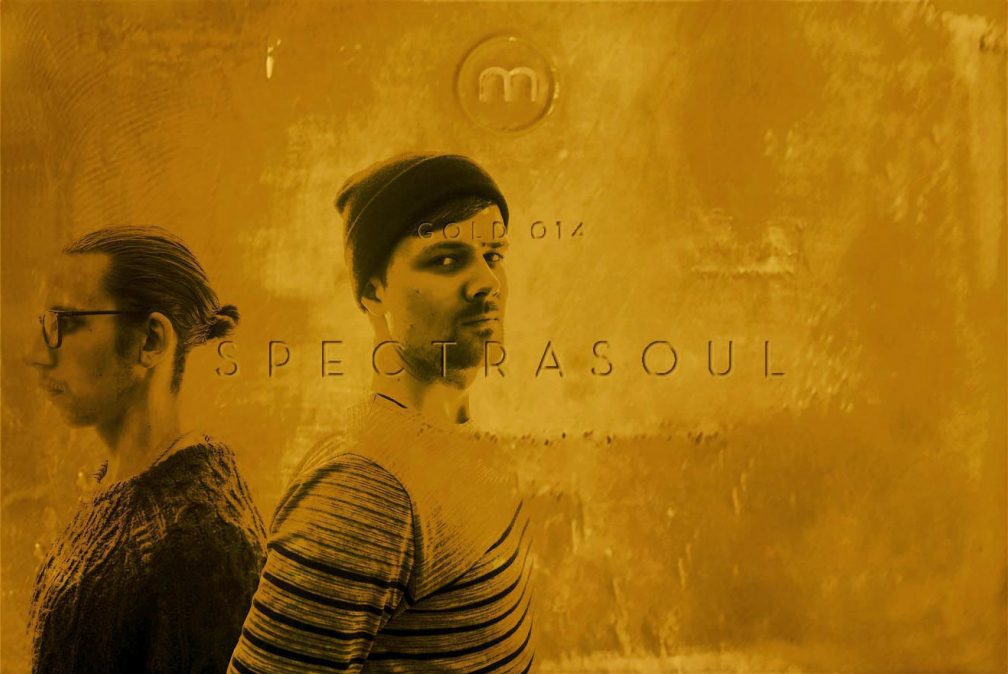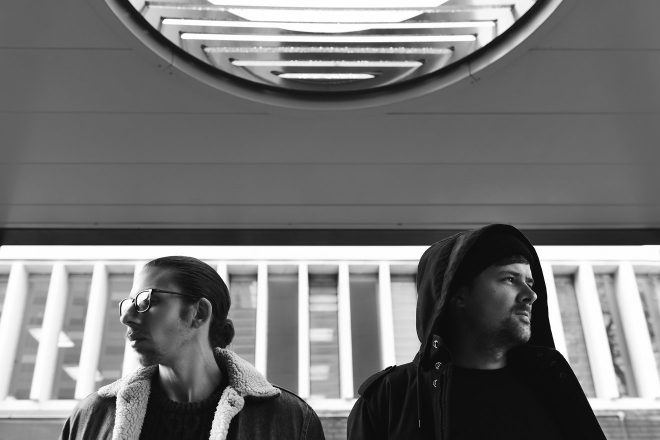 Features
Features
Gold Artist 014: Spectrasoul
The Shogun Audio duo are back with a killer second album, 'The Mistress'
What spurred on the live show for the album launch in London last month?
D: We did a live showcase for our first album ['Delay No More'] a couple of years ago and we just wanted to do something a bit more hands-on and showcase our amazing vocalists in a live environment. Obviously the album isn't all club-friendly so it's nice to be able to perform some of the less club-orientated tracks in an environment where people are willing to listen to it. We can stretch DJ sets a little bit and play the non-dancier tracks but, ultimately, it's clubs where the more bass-heavy stuff gets played.
J: We didn't want our album launch just to be a club show. We wanted it to be about our record that we're celebrating. It's more like, 'people haven't heard any of these records before, let's get the vocalists down and perform those', rather than doing a DJ show. We're doing that anyway with the UK, European and North American tour. We may even do a small tour of the live show at some point. It's not the sort of live show that's easy to place, so it's kind of tricky.
You had an extended quiet period between your first album, 'Delay No More', and this one. What took so long to get it together?
J: If we'd have started straight away off the back of the last record, this one probably would have sounded a lot like that one. From taking a bit of time with it, the album's basically the best tunes we've made in the last three years. That's why I think there's a fair bit of breadth to it. There's some bits that do sound like the first record but there's also stuff that's moved on a bit. We got a new studio straight after the first album so we spent a lot of time planning new creative processes and working on new sounds. That's a reflection of what's on the record, too. Yeah, it took us out of the market for a longer period than we wanted to be, but it means when we did come back, we have a better product than we would have if we rushed into it.
It's an exciting time for drum 'n' bass at the moment with a lot of fresh, young producers coming through. Where do you see yourselves status-wise now you're on album number two?
J: I don't think that's something either of us think about. That would be putting it in the paradigms of competition. I don't see it as hierarchy or anything, but there's definitely friendly competion between producers. Most of it's about technical stuff really, not who can write the best tunes. Though, I do think there's a hierarchy as the generation goes. We'd be on the same level as Alix Perez and Icicle. Above us you've got your Calibres, your Marcus Intalexs, your Commixs. Then above that you've got your Goldies and your Grooveriders.

Wilkinson and Sigma aside, do you think there's scope for d'n'b dominating the charts as much as house music has in the past 18 months?
J: House music has been around for ages and when I think of it, four-to-the-floor in a chart format has been around for years. For d'n'b in the charts, I don't think it's ever been stronger. There's Wilkinson, Sigma have had two number ones, Rudimental you could call drum 'n' bass. I'm not saying it's all to my taste, but I'd call all of that drum 'n' bass pop music.
D: Again, music goes in cycles. You can trace it back to Shy FX ['Shake Ur Body'] and Roni Size ['New Forms' LP] having their chart successes. You've got the one-off hits here and there and it's always interesting when underground music rears its head into the mainstream. It tends to drive the more underground people even further underground and the stuff that is mainstream tends to go out of d'n'b into pop. Like DJ Fresh for example. He doesn't play at d'n'b raves anymore because he's gone so far one way, he can't necessarily come back.
It's testament to how people are consuming music these days, as well. You don't have to sell hundreds of thousands of music anymore to get into the charts.The more poppy d'n'b that is getting into the charts is appealing to the younger audience and fans. All they've got to do is click a button to buy it. They might like it for a week then move on to the next thing.
"There's not nearly enough emphasis placed on the importance of creativity in the UK"
Tweet this quote
How would you feel if a major label came in for you guys?
J: It all depends on the situation because Dave and I are quite principle of what we do and we're perfectionists in terms of wanting to be involved in every element of how it's presented to the public. We make a living from what we do but that's not why we do it. It's not specifically to make money because we're both creative types. Regardless whether it's a major label, they have to understand that [creativity] comes first and foremost. I saw that Spotify contract with Sony recently and it gives you an idea that the majors aren't interested in giving you freedom. At the end of the day, it's a business for those guys and if the situation did come along, we'd have to move our position a little bit.
Have you had any thoughts on starting your own label?
J: It's been discussed, but with the album, we've not had much time to think about it. We never will have much time really, because we're always in the studio or out gigging. I think it's a really exciting time for labels. We're good friends with Darren [dBridge] and what he's decided to do at Exit Records is cut out the middle man (the distributor) and it's freed him up to do a lot more interesting things with releases.

This one's aimed at you Jack. You were pretty vocal on Twitter about the Tories being re-elected into power. What effect do you think that'll have on UK nightlife over the next five years?
J: Put it this way. I don't think there's nearly enough emphasis placed on the importance of creativity in the UK. I don't think anyone understands the value of creativity here. It's constantly undervalued, not just by the Tories, but it always has been in this country because they [the government] can't put a price tag on it. So many people come to the UK for music, to go to club shows, art exhibitions, all sorts of things you can only access in Britain. For funding of creativy-type courses and creative-type subsidies all being cut, it's got to a point where there's limited possibility to do creative things. I hope I'm proved wrong but at the moment I'm incredibly pessimisstic about what it's going to be like for young people trying to get into art or music for the next five years. It's pretty scary.
"Not to moan about d'n'b, but I think there's a problem with the thing about hour sets"
Tweet this quote


